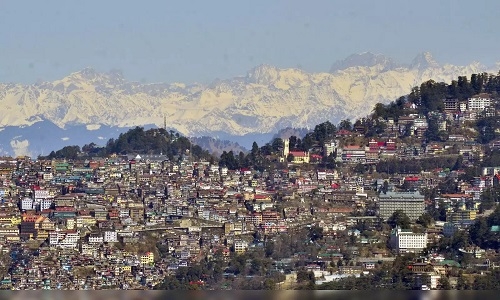People for Himalaya Issues 5-pt charter of demand for political parties
| Date :31-Mar-2024 |

NEW DELHI,
MORE than 60 environmental and social organisations in the country have demanded a complete ban on all mega infrastructure projects, such as those related to the railways, dams, hydro projects and four-lane highways in the Himalayas, and have urged for referendums and public consultations to be made compulsory for all development projects. The organisations, jointly leading the “People for Himalaya” campaign, issued a five-point charter of demand for all political parties for the upcoming Lok Sabha polls during an online press conference. They called for a complete moratorium on all mega infrastructure projects, including those related to the railways, dams, hydro projects, tunneling, transmission lines and four-lane highways, along with a comprehensive multidisciplinary review of the impacts of the existing projects. The organisations demanded that democratic decision-making through referendums and public consultations be made compulsory for large infrastructure projects.
They also called for the strengthening of Environment Impact Assessment Notification-1994, the scrapping of the EIA-2020 amendments and FCA-2023 amendments, and free prior informed consent of gram sabhas for all development projects. Addressing the press conference, climate activist Sonam Wangchuk said, “While industries exploit the riches of the Himalayas, the local people bear the brunt of disasters. The Government uses taxpayers’ money for rehabilitation efforts, yet those who reap the benefits are not held accountable.” Wangchuk said, “Bureaucrats from Chandigarh or Lucknow may not fully understand the fragility of the region. The best of all could also make mistakes and the worst of all would sell it off to industries.” Mohan Saikia from the Northeast Dialogue Forum warned of severe ecological impacts of massive hydropower development proposed on the Brahmaputra river and its basins, without the consent of the local indigenous communities. “The far-reaching impact of these infrastructure projects is manifested in the form of floods,” Saikia said.
Guman Singh from the Himalaya Niti Abhiyan and Atul Sati of the Joshimath Bachao Sangharsh Samiti said the Beas floods and the land subsidence in Joshimath are “man-made, policy-led disasters”. Vimla Vishwapremi of the Parvatiya Mahila Adhikar Manch, Himachal Pradesh said pastoralists, landless Dalits and women, who contribute the least to these policy disasters and the climate crisis, are the worst hit. Anmol Ohri from the Climate Front Jammu warned that mindless pilgrim tourism, road construction in glacial regions and riverfront development projects will increase the risk of floods in the region.